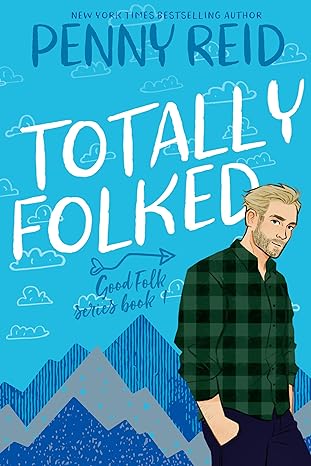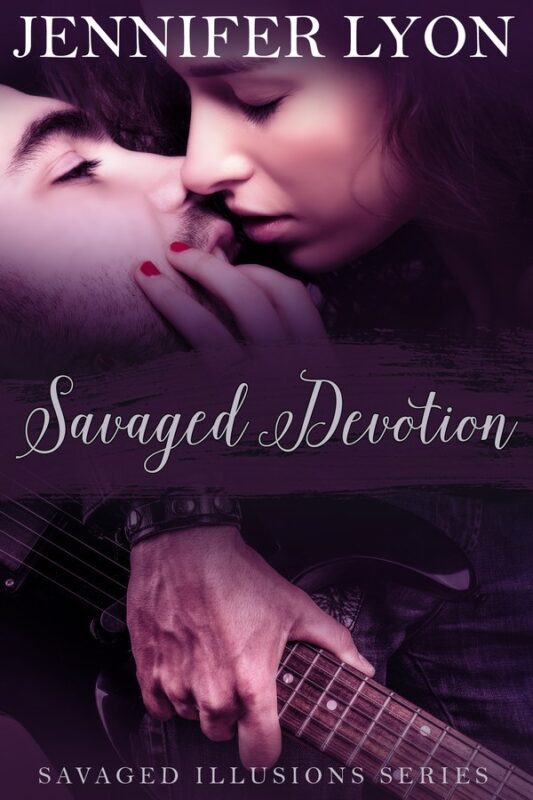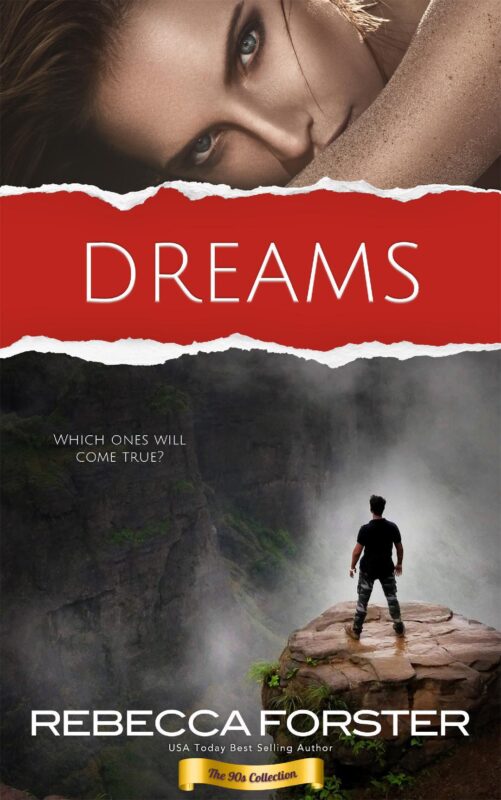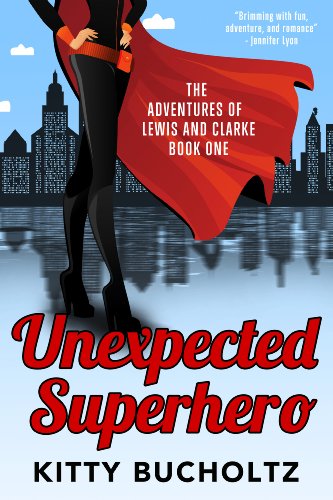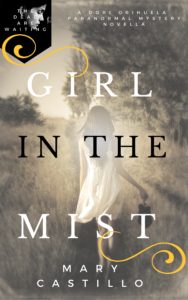The Seven Challenges I Love About Writing Short Stories by Jerome W. McFadden
May 13, 2024 by Bethlehem Writers Group in category From a Cabin in the Woods by Members of Bethlehem Writers Group tagged as Jerome W. McFadden, Short Stories, writing, Writing Advice
Multi-award winning Jerome W. McFadden’s has had forty short stories published over the past ten years in magazines, e-zines, and a dozen anthologies. His efforts have won him several national awards and writing contests, receiving a National Bullet Award for the Best Crime fiction on appear on the web in June 2011. His short stories have been read on stage by the Liar’s League in Hong Kong and the Liar’s League in London.
After receiving his B.A. from the University of Missouri, he spent two years as a Peace Corps volunteer in Casablanca, Morocco. Following his MBA from the Thunderbird Graduate School of Global Management (Arizona State University). He continued his peripatetic ways with corporate assignments in Houston, Istanbul, Paris, San Francisco, and Singapore, spending his spare time writing free-lance articles for American and newspapers and magazines. He morphed from journalism to short fiction in 2009. He now resides in Bethlehem, Pa. and is an active member of the Bethlehem Writers Group. His collection of 26 short stories, Off The Rails, A Collection of Weird, Wicked, & Wacky Stories, appeared in November, 2019.

The Seven Challenges that I Love About Writing Short Stories
1) You need to get into the story from the very start:
Every word in a short story matters. Time and space are limited. You cannot afford to waste a page or two describing the weather, building the setting, or giving the genealogy of your hero/heroine. You need to get to the guts of the action quickly, pulling the reader in with the first paragraph. By the end of the first page, the reader should be aware of the famous 5 W’s of journalism: Who, where, when, what, with why possibly coming later.
2) You need to quickly define the core of the story:
Short stories follow only one trajectory — one arc—concerning one character (or a small group of characters) traveling through one primary crisis or concern. The crisis or concern is in fact one shattering moment in that person’s (or group’s) life that he/she must work through, successfully or unsuccessfully. Note: That shattering moment does not need to be violent. It could be emotional, psychological, mental, or spiritual, or other. But it needs to be challenging. *
3) You must develop your characters rapidly:
Characters must be constructed with complexity, credibility, and emotion—in as little as a sentence or two. The writer must show character development while actively moving through the story’s narrative. You do not have time or space for the big old info dump. Instead, the writer needs to use clever dialogue, interactions, short flashbacks, and sharp imagery to develop the story’s characters.
4) You are allowed only so many characters in the story:
You are limited to a small cast of characters. A full cast might consist of only one or two characters. Any character you decide to introduce must bring something crucial to the story – or be eliminated. Bringing in a character for “cuteness” or for “color” or just because you like the quirky character in your head, is wasting precious words and precious space in your story. A good rule: Any character that does not bring in two vital elements into the story needs to be eliminated forthwith.
5) Short stories require a strong pace and balance:
Recognize the descriptions and dialogues that slowing the story down, as well those that are those that are moving the story along. You must identify the best place to start, where to put the opening scene that hooks the reader, then maintain that hook to continue to pull the reader through the rest of the story.
6) Short stories teach you to trim the fat:
Short stories leave no time for easing into things (long descriptions, banal conversations, interesting but boring backstory, wild personal tangents). Short stories are just that—short—but they must always pack a punch. This may be the ultimate skill to be learned from short story writing: Trim the fat. My favorite writing “rule” comes from the legendary writer Elmore Lenonard, “Leave out the parts that the readers skip.”
7) A great short story must create an emotional impact:
The stronger, the better. And a great twist at the ending helps make the story memorable.
An added note: The tools and skill you pick up from writing short stories are assets that can and probably should be used in your novel writing.
*This “shattering moment” is described lovingly and in full detail in Chapter 3 – The Big Key in James Scott Bell’s wonderful book How to Write Short Stories And Use Them to Further Your Writing Career.
A Selection of Books with Short Stories by Jerome W. McFadden
I Am a Terrible Would-be Novelist
December 13, 2020 by Bethlehem Writers Group in category From a Cabin in the Woods by Members of Bethlehem Writers Group tagged as differences, Jerome W. McFadden, novelist, off the rails, Short Stories
I am a terrible would-be novelist. I hack and struggle at it, only to discover my heroine in chapter one started as a red head and somehow became a blonde in chapter 29, and I’ve been at the damn story for nine months and am still nowhere near the finish.
In contrast, my short stories come to me fast and often. They’ve been awarded prizes and recognition and two of them have been read aloud by The Liar’s Leagues in London and Hong Kong. My recent collection of short stories (“Off the Rails”) won two Indie awards and some nice reviews.
This disparate mix of writing success does not surprise me. I discovered early that folks have a distinct talent for different components of the same activity: As a teenager, I discovered that I could run a mile faster than most kids. Fast enough for a couple of high school state championships. Fast enough for a college scholarship. Fast enough to run pro for a couple of years.
In contrast, was lousy as a sprinter and could never run a good marathon. I would be on that road for hours with kids, young women, young men, and several oldies, streaming past me. No matter how hard I tried, my mind and body could not form a relationship to enable me to be long distance runner.
Did that make me a bad runner? No. I just had to recognize where my talent lay. But I continued to run marathons for the experience and fun of it, knowing I would never be brilliant, but I would improve. And I could celebrate my improvement. Running is a sport that I love, both the short form and the long form.
Same as my writing.

Jerome W. McFadden is an award-winning short story writer whose stories have appeared in 50 magazines, anthologies, and e-zines over the past ten years. He has received a Bullet Award for the best crime fiction to appear on the web. Two of his short stories have been read on stage by the Liar’s League London and Liar’s League Hong Kong. His collection of 26 short stories, entitled “Off the Rails” was published in October, 2019, to great reviews. He is also the co-editor of the BWG Writers Roundtable e-zine.
The Bridge
A Short Story by Jerome W. McFaddn
“You gonna jump?” he asked.
She stood on the outside of the railing, one hand gripping the barrier, the other helding a small clutch bag tightly against her side. Her red cloth coat looked too thin for the cold weather.
“It’s a way long way down,” Duane said, “Gonna be a thrill, like a bungee jump without the happy ending.”
“Leave me alone,” she snapped, not bothering to look at him.
“Don’t get mad at me. I ain’t making you jump. I just stopped to watch.”
“Go away.”
“It’s a free bridge. You can jump. I can watch.”
Silence.
“Can I ask you a question?”
“I don’t want to talk about it.”
Duane smiled. “That wasn’t my question.”
A return to silence.
“If you’re gonna jump, do you need your purse? Got any money in there?
Credit cards?”
She turned to face him. “I’m jumping off the bridge and you’re trying to mug me?”
“I’m not trying to mug you, for chrissakes,” Duane said. “I’m panhandling. You jump, you no longer need your purse. I could use any money or credit cards you have in there. It’s ain’t like you’re gonna worry about paying the bills.”
“Go to hell.”
“You may make it there before I do.”
She sighed, “If I give you the purse, will you go away and leave me alone?”
“I’ll make you a deal. If you have a cell phone or any ID in your purse, I’ll call whoever you want and tell them you took the plunge.”
She surprised him by sinking down to position the purse on the ledge, next to her feet. “Come and get it if you want it that badly.”
He started to crawl over the railing but backed off. It was scary out there on the other side. So he lay across the railing, balancing on his belly, his legs dangling in the air as he stretched one arm out for the purse.
He was surprised to feel her hands on his collar and the back of his belt, pulling him over the railing. He scrabbled for a hand hold but she was too fast and too strong. He tumbled over and over for a long time before hitting the hard, cold water.
The woman picked up her purse, not bothering to glance down at the river.
“Annoying bastard,” she said to herself as she hiked up her skirt and coat to climb back over to the railing, “But at least he made me feel better!”
Jerome W. McFadden’s Award Winning Short Story Collection
Other Anthologies with Stories by Jerome W. McFadden
The Seven Challenges I Love About Writing Short Stories by Jerome W. McFadden
December 13, 2019 by Bethlehem Writers Group in category From a Cabin in the Woods by Members of Bethlehem Writers Group tagged as Jerome W. McFadden, Short Stories, writing, Writing Advice

Multi-award winning Jerome W. McFadden’s has had forty short stories published over the past ten years in a wide magazines, e-zines, and a dozen anthologies. He efforts have won him several national awards and writing contests, receiving a National Bullet Award for the Best Crime fiction on appear on the web in June 2011. His short stories have been read on stage by the Liar’s League in Hong Kong and the Liar’s League in London.
After receiving his B.A. from the University of Missouri, he spent two years as a Peace Corps volunteer in Casablanca, Morocco. Following his MBA from the Thunderbird Graduate School of Global Management (Arizona State University). He continued his peripatetic ways with corporate assignments in Houston, Istanbul, Paris, San Francisco, and Singapore, spending his spare time writing free-lance articles for American and newspapers and magazines. He morphed from journalism to short fiction in 2009. He now resides in Bethlehem, Pa. and is an active member of the Bethlehem Writers Group. His collection of 26 short stories, Off The Rails, A Collection of Weird, Wicked, & Wacky Stories, appeared in November, 2019.
The Seven Challenges that I Love About Writing Short Stories
1) You need to get into the story from the very start:
Every word in a short story matters. Time and space are limited. You cannot afford to waste a page or two describing the weather, building the setting, or giving the genealogy of your hero/heroine. You need to get to the guts of the action quickly, pulling the reader in with the first paragraph. By the end of the first page the reader should be aware of the famous 5 W’s of journalism: Who, where, when, what, with why possibly coming later.
2) You need to quickly define the core of the story:
Short stories follow only one trajectory — one arc — concerning one character (or a small group of characters) traveling through one primary crisis or concern. The crisis or concern is in fact one shattering moment in that person’s (or group’s) life that he/she must work through, successfully or unsuccessfully. Note: That shattering moment does not need to be violent. It could be emotional, psychological, mental, or spiritual, or other. But it needs to be challenging. *
3) You must develop your characters rapidly.
Characters must be construct with complexity, credibility, and emotion—in as little as a sentence or two. The writer must show character development while actively moving through the story’s narrative. You do not have time or space for the big old info dump. Instead, the writer needs to use clever dialogue, interactions, short flashbacks, and sharp imagery to develop the story’s characters.
4) You are allowed only so many characters in the story:
You are limited to a small cast of characters. A full cast might consist of only one or two characters. Any character you decide to introduce must bring something crucial to the story – or be eliminated. Bringing in a characters for “cuteness” or for “color” or just because you like the quirky character in your head, is wasting precious words and precious space in your story. A good rule: Any character that does not bring in two vital elements into the story needs to be eliminated forthwith.
5) Short stories require a strong pace and balance:
Recognize the descriptions and dialogues that slowing the story down, as well those that are those that are moving the story along. You must identify the best place to start, where to put the opening scene that hooks the reader, then maintain that hook to continue to pull the reader through the rest of the story.
6) Short stories teach you to trim the fat:
Short stories leave no time for easing into things (long descriptions, banal conversations, interesting but boring backstory, wild personal tangents). Short stories are just that—Short —but they must always pack a punch. This may be the ultimate skill to be learned from short story writing: Trim the fat. My favorite writing “rule” comes from the legendary writer Elmore Lenonard, ‘Leave out the parts that the readers skip.”
7) A great short story must create an emotional impact:
The stronger the better. And a great twist at the ending helps make the story memorable
An added note: The tools and skill you pick up from writing short stories are assets that can and probably should be used in your novel writing.
*This “shattering moment” is described lovingly and in full detail in Chapter 3 – The Big Key in James Scott Bell’s wonderful book How to Write Short Stories And Use Them to Further Your Writing Career.
A Selection of Books by Jerome W. McFadden
Affiliate Links
A Slice of Orange is an affiliate with some of the booksellers listed on this website, including Barnes & Nobel, Books A Million, iBooks, Kobo, and Smashwords. This means A Slice of Orange may earn a small advertising fee from sales made through the links used on this website. There are reminders of these affiliate links on the pages for individual books.
Search A Slice of Orange
Find a Column
Archives
Featured Books
SAVAGED DEVOTION
She fell in love with a rock star and lost everything…
More info →GIRL IN THE MIST
We all keep secrets, especially from the ones we love.
More info →Newsletter
Contributing Authors
Search A Slice of Orange
Find a Column
Archives
Authors in the Bookstore
- A. E. Decker
- A. J. Scudiere
- A.J. Sidransky
- Abby Collette
- Alanna Lucus
- Albert Marrin
- Alice Duncan
- Alina K. Field
- Alison Green Myers
- Andi Lawrencovna
- Andrew C Raiford
- Angela Pryce
- Aviva Vaughn
- Barbara Ankrum
- Bethlehem Writers Group, LLC
- Carol L. Wright
- Celeste Barclay
- Christina Alexandra
- Christopher D. Ochs
- Claire Davon
- Claire Naden
- Courtnee Turner Hoyle
- Courtney Annicchiarico
- D. Lieber
- Daniel V. Meier Jr.
- Debra Dixon
- Debra H. Goldstein
- Debra Holland
- Dee Ann Palmer
- Denise M. Colby
- Diane Benefiel
- Diane Sismour
- Dianna Sinovic
- DT Krippene
- E.B. Dawson
- Emilie Dallaire
- Emily Brightwell
- Emily PW Murphy
- Fae Rowen
- Faith L. Justice
- Frances Amati
- Geralyn Corcillo
- Glynnis Campbell
- Greg Jolley
- H. O. Charles
- Jaclyn Roché
- Jacqueline Diamond
- Janet Lynn and Will Zeilinger
- Jaya Mehta
- Jeff Baird
- Jenna Barwin
- Jenne Kern
- Jennifer D. Bokal
- Jennifer Lyon
- Jerome W. McFadden
- Jill Piscitello
- Jina Bacarr
- Jo A. Hiestand
- Jodi Bogert
- Jolina Petersheim
- Jonathan Maberry
- Joy Allyson
- Judy Duarte
- Justin Murphy
- Justine Davis
- Kat Martin
- Kidd Wadsworth
- Kitty Bucholtz
- Kristy Tate
- Larry Deibert
- Larry Hamilton
- Laura Drake
- Laurie Stevens
- Leslie Knowles
- Li-Ying Lundquist
- Linda Carroll-Bradd
- Linda Lappin
- Linda McLaughlin
- Linda O. Johnston
- Lisa Preston
- Lolo Paige
- Loran Holt
- Lynette M. Burrows
- Lyssa Kay Adams
- Madeline Ash
- Margarita Engle
- Marguerite Quantaine
- Marianne H. Donley
- Mary Castillo
- Maureen Klovers
- Megan Haskell
- Melanie Waterbury
- Melisa Rivero
- Melissa Chambers
- Melodie Winawer
- Meriam Wilhelm
- Mikel J. Wilson
- Mindy Neff
- Monica McCabe
- Nancy Brashear
- Neetu Malik
- Nikki Prince
- Once Upon Anthologies
- Paula Gail Benson
- Penny Reid
- Peter Barbour
- Priscilla Oliveras
- R. H. Kohno
- Rachel Hailey
- Ralph Hieb
- Ramcy Diek
- Ransom Stephens
- Rebecca Forster
- Renae Wrich
- Roxy Matthews
- Ryder Hunte Clancy
- Sally Paradysz
- Sheila Colón-Bagley
- Simone de Muñoz
- Sophie Barnes
- Susan Kaye Quinn
- Susan Lynn Meyer
- Susan Squires
- T. D. Fox
- Tara C. Allred
- Tara Lain
- Tari Lynn Jewett
- Terri Osburn
- Tracy Reed
- Vera Jane Cook
- Vicki Crum
- Writing Something Romantic
Affiliate Links
A Slice of Orange is an affiliate with some of the booksellers listed on this website, including Barnes & Nobel, Books A Million, iBooks, Kobo, and Smashwords. This means A Slice of Orange may earn a small advertising fee from sales made through the links used on this website. There are reminders of these affiliate links on the pages for individual books.


















